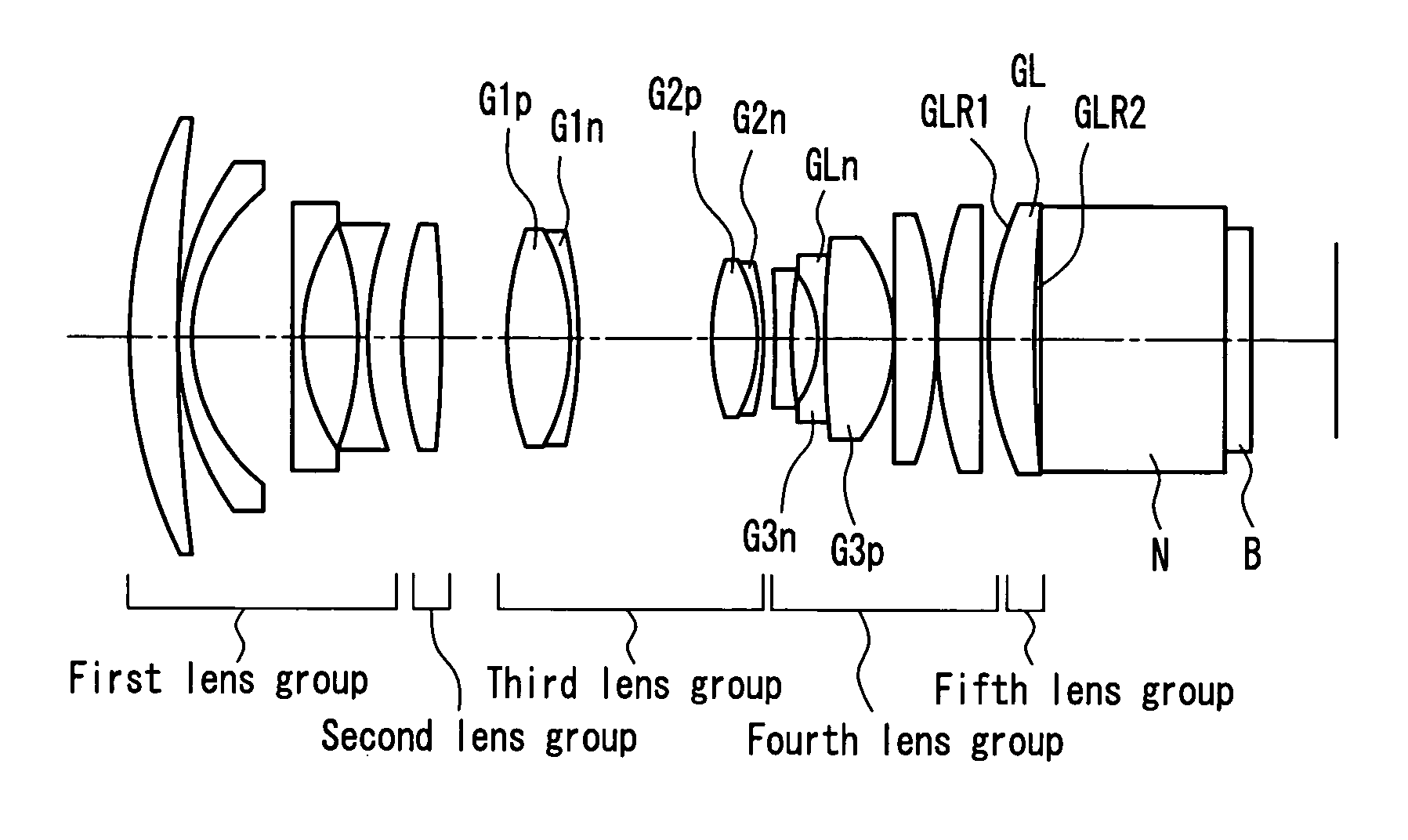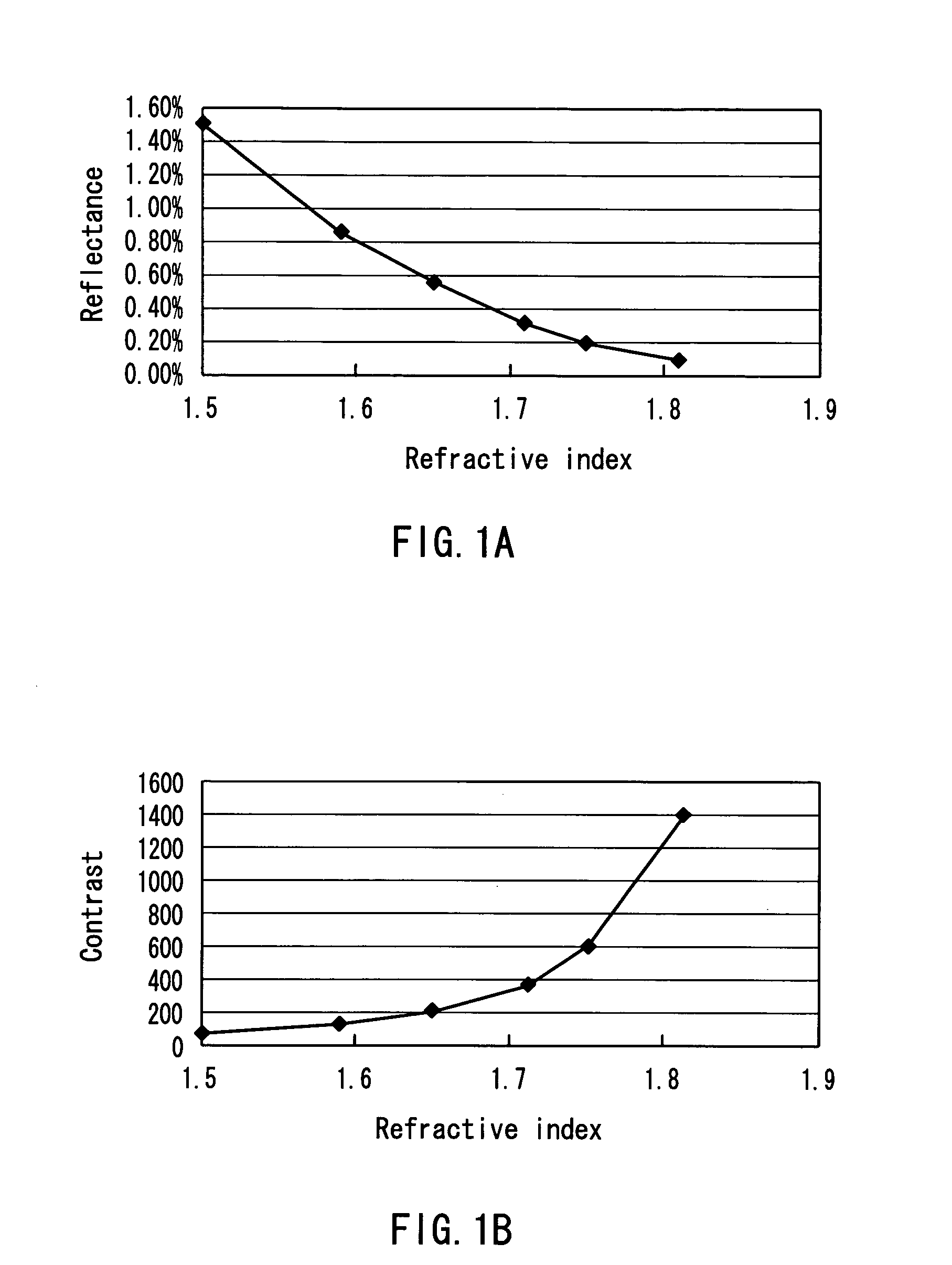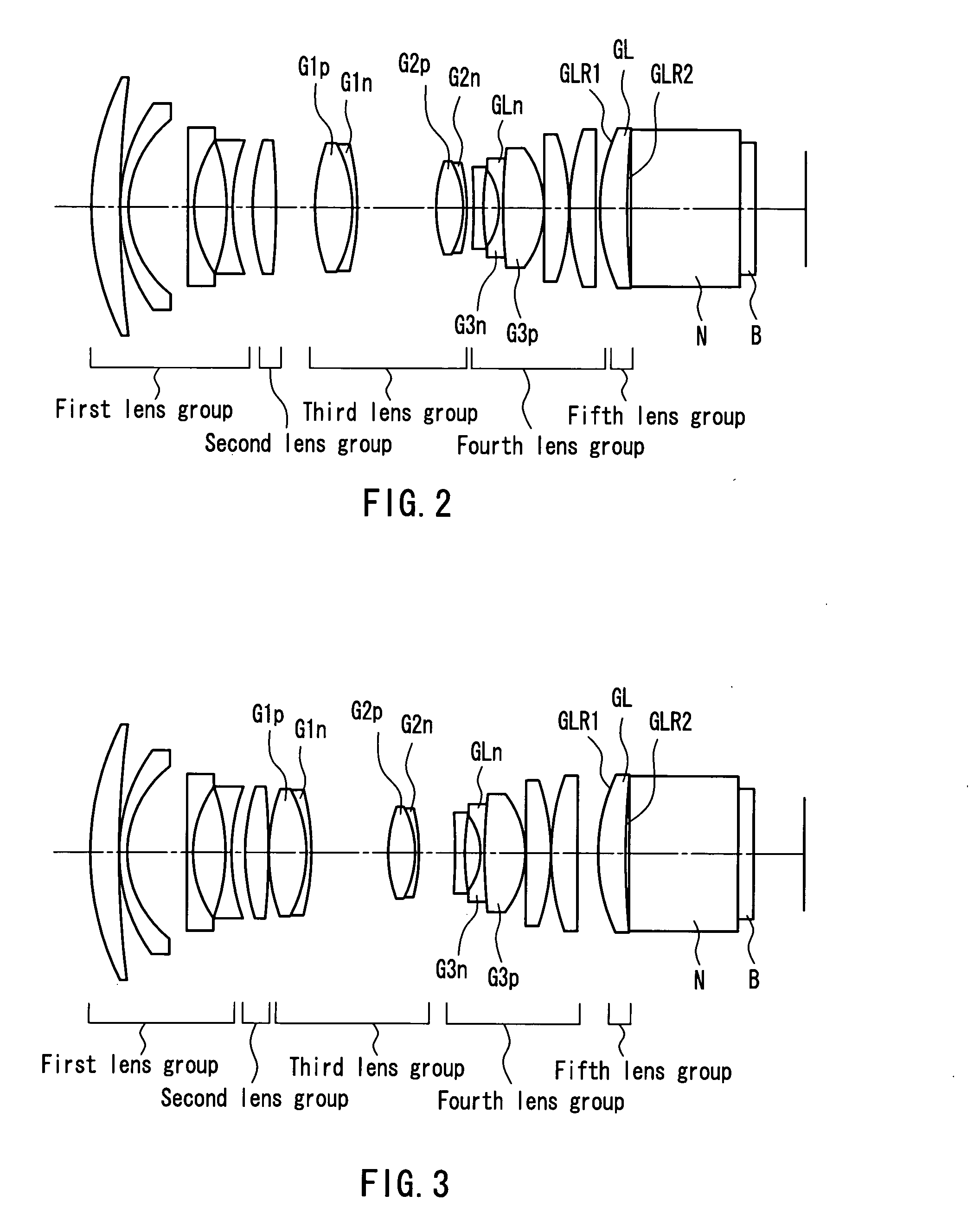Zoom lens, and image magnification projection system using it and video projector, and rear projector and multi-vision system using the video projector
a technology applied in the field of zoom lens and projector, to achieve the effect of favorable correction of distortion
- Summary
- Abstract
- Description
- Claims
- Application Information
AI Technical Summary
Benefits of technology
Problems solved by technology
Method used
Image
Examples
first embodiment
[0149] A zoom lens according to a first embodiment of the present invention will be described with reference to the drawings. FIG. 2 shows the configuration of a zoom lens at the wide-angle end according to the first embodiment of the present invention. FIG. 3 shows the configuration of the zoom lens at the telephoto end according to the first embodiment of the present invention (FIGS. 2 and 3 also show a zoom lens in Example 1, which will be described later).
[0150] As shown in FIG. 2, the zoom lens of this embodiment includes a first lens group having a negative refractive power, a second lens group having a positive refractive power, a third lens group having a positive refractive power, a fourth lens group having a negative refractive power, and a fifth lens group having a positive refractive power (five group configuration), arranged in the indicated order from the screen side (on the left side in FIG. 2). In FIG. 2, N denotes a glass block such as a prism, and B denotes a refl...
example 1
[0159]FIG. 2 shows the configuration of a zoom lens at the wide-angle end in Example 1 according to the first embodiment of the present invention. FIG. 3 shows the configuration of the zoom lens at the telephoto end in Example 1 according to the first embodiment of the present invention.
[0160] In this example, a zoom lens having an F number FNO of 1.7, a focal length f of 23.95 mm, and a half angle of view W of 27.75° at the wide-angle end was designed based on the configuration of the present invention so as not to cause ghosts or reduce the contrast.
[0161] Table 2 shows a specific numerical example. In Table 2, ri denotes the radius of curvature of the lens surfaces, di denotes the lens thickness or the distance between the lens surfaces, ni denotes the refractive index at the d line of the lenses, and νi denotes the Abbe number at the d line of the lenses (theses are also applicable to the another examples described later).
TABLE 2Conditional expression (1)(GLR1 / GLnd − Bfw) / fw...
example 2
[0163]FIG. 6 shows the configuration of a zoom lens at the wide-angle end in Example 2 according to the first embodiment of the present invention. FIG. 7 shows the configuration of the zoom lens at the telephoto end in Example 2 according to the first embodiment of the present invention.
[0164] In this example, a zoom lens having an F number FNO of 1.7, a focal length f of 23.90 mm, and a half angle of view W of 27.81° at the wide-angle end was designed based on the configuration of the present invention so as not to cause ghosts or reduce the contrast.
[0165] Table 3 shows a specific numerical example.
TABLE 3Conditional expression (1)(GLR1 / GLnd − Bfw) / fw = −0.2678Conditional expression (2)(GLR2 − Bfw) / fw = 10.077Conditional expression (3)fGL / fw = 2.824Conditional expression (4)PgFGL − 0.6457 + 0.0017 ×νdGL = 0.0137Conditional expression (5)PgFGLn = 0.609Conditional expression (6)(PgFGLn − PgFGL) / (νdGLn −νdGL) =−0.0037Conditional expression (7)νdGp1 −νdGn1 = 8.3Conditional express...
PUM
 Login to View More
Login to View More Abstract
Description
Claims
Application Information
 Login to View More
Login to View More - R&D
- Intellectual Property
- Life Sciences
- Materials
- Tech Scout
- Unparalleled Data Quality
- Higher Quality Content
- 60% Fewer Hallucinations
Browse by: Latest US Patents, China's latest patents, Technical Efficacy Thesaurus, Application Domain, Technology Topic, Popular Technical Reports.
© 2025 PatSnap. All rights reserved.Legal|Privacy policy|Modern Slavery Act Transparency Statement|Sitemap|About US| Contact US: help@patsnap.com



